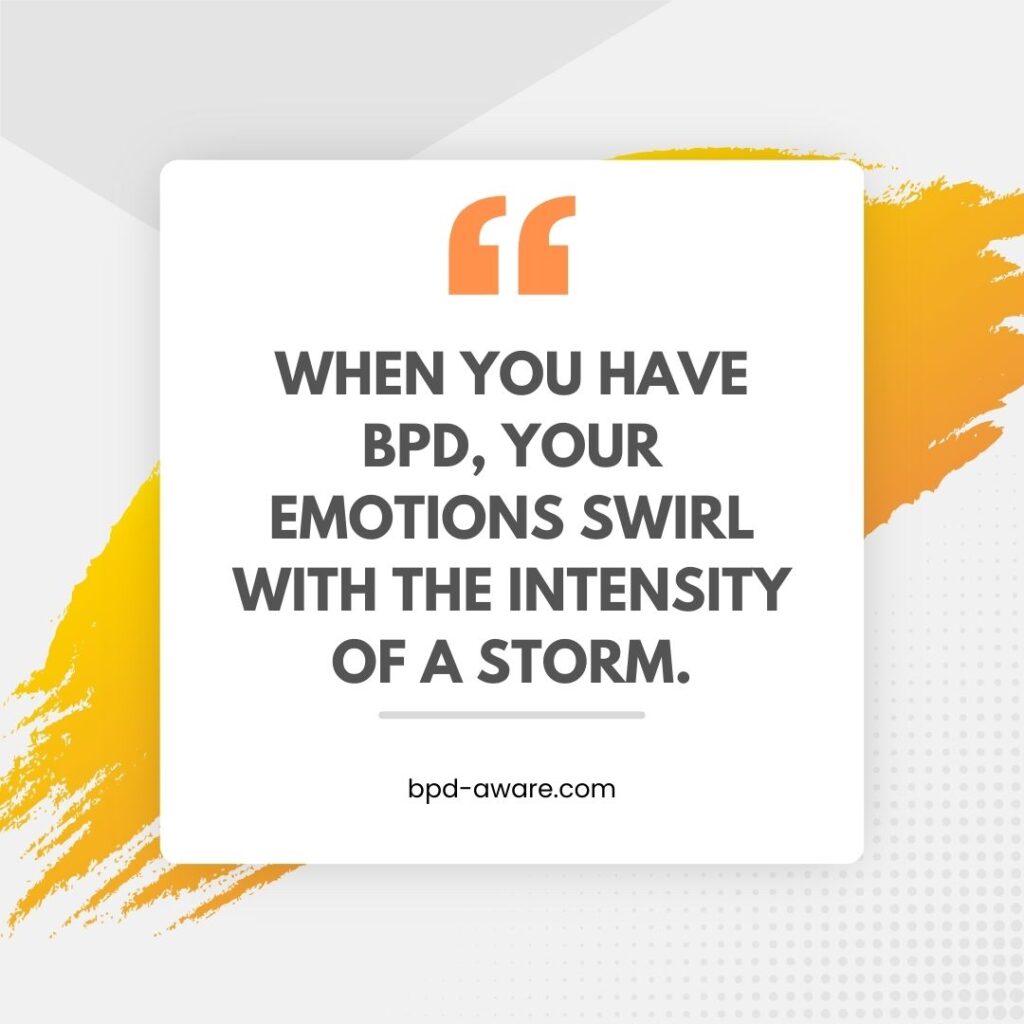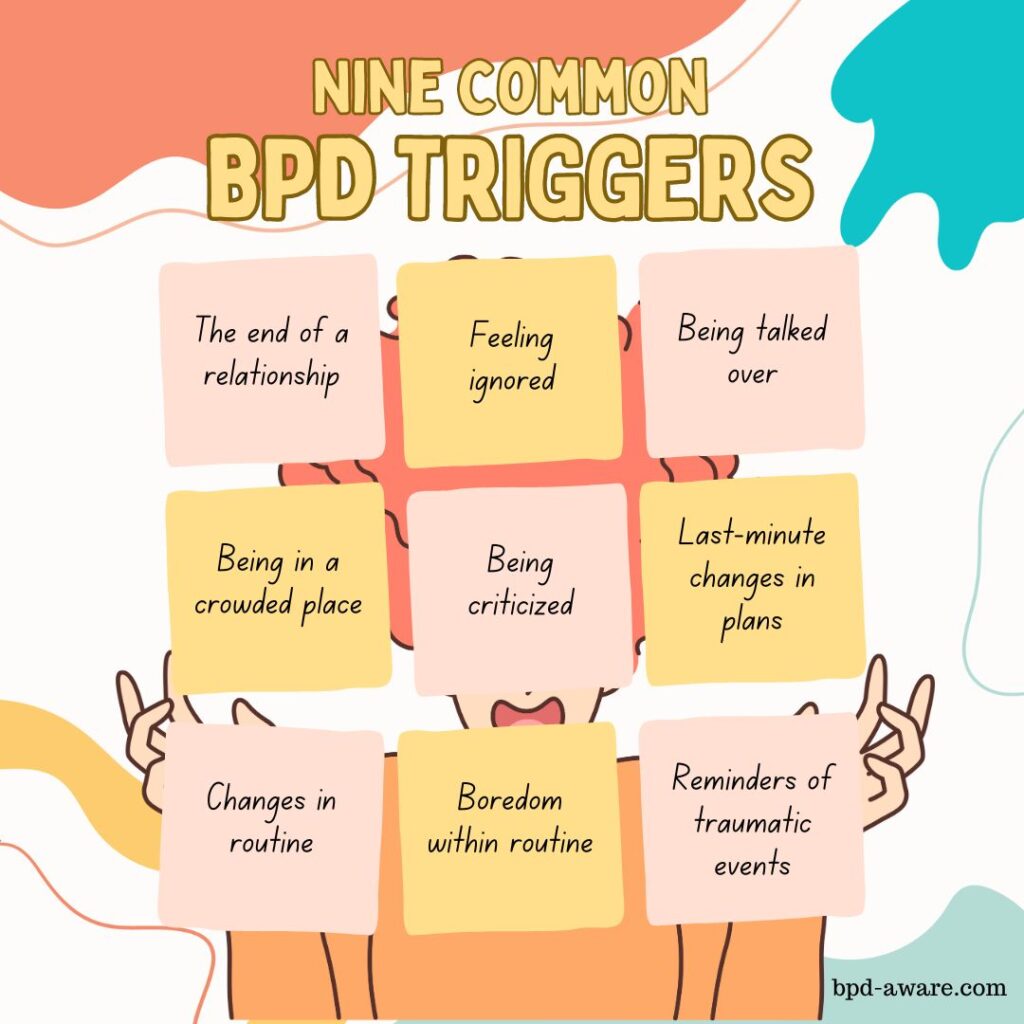Living with Borderline Personality Disorder (BPD) isn’t easy at the best of times. Even when things seem to be going well, something can come along and trigger a massive BPD episode. Sometimes it can be a major event that would seriously affect anyone, but other times it can be smaller things that would seem relatively innocuous to people who don’t know what it’s like to live with the symptoms of BPD.
Of course, different people have different triggers. An event or incident that triggers a BPD episode in one sufferer might not phase another. It depends on the symptoms of the person with BPD, how these symptoms manifest, the life experiences of the individual, their mood on that particular day, and a host of other issues.
However, there are a few triggers that seem to be common among the BPD community. We have created this list so that people with BPD (or suspect they have BPD) can feel like they’re not alone in their struggles. This list can also be used by people who have loved ones with BPD so they can educate themselves on the condition so they can better avoid inadvertently triggering a BPD episode.

Nine Common BPD Triggers
The End of a Relationship: One of the core symptoms of BPD is a fear of abandonment, so when a relationship ends these fears become very real. The end of a relationship is likely to make the person with BPD suffer from an extreme amount of emotional distress and evoke feelings of worthlessness and hopelessness.
Feeling Ignored: Feeling ignored can cause further feelings of loneliness and rejection. This can often tie into the fear of abandonment. Someone with BPD may believe they’re being ignored because a relationship is about to end. However, people with BPD can be hyper-sensitive to social cues and jump to believing they’re being ignored when, in actuality, their loved one is just busy or struggling with something themselves.
Being Talked Over: Being talked over by someone, or just generally having the feeling that someone isn’t listening to you, is incredibly frustrating. Having this happen, especially repeatedly, can lead to anger, interpersonal conflicts, and difficulty regulating emotions.
Being In a Crowded Place: Crowded places can be overwhelming for some people with BPD due to the amount of stimulation happening. Being in an area with a lot of people can trigger anxiety and the fight-or-flight response in people with BPD. Some people with BPD avoid crowded social situations for this reason.
Feeling Judged or Being Criticized: Feeling like they’re being negatively judged or criticized can be a massive trigger for some people with BPD. It can lead to feelings of worthlessness, shame, and self-hatred which manifest as impulsive or self-destructive behaviors. It’s important to choose your words wisely when talking to someone with BPD as the condition causes hyper-sensitivity.
Last-Minute Changes in Plans: Last-minute changes to plans can disrupt the sense of security someone with BPD has in their mind about a situation. They may have mentally prepared to meet you and another friend in one place, then it’s suddenly five other people in a place they’ve never been before. This can make them feel insecure, and anxious and possibly even trigger their fear of abandonment. They don’t want to be the ones to say “no” but they may not feel comfortable with these new plans.
Changes in Routine: Changes in routine can be deeply challenging for people with BPD. Some high-functioning people with BPD may plan their days out quite meticulously for the benefit of their mental and physical health. Others with BPD may have a certain comfort zone which they try to stay inside because leaving said comfort zone can trigger the worst of their symptoms. Whatever the situation, changes in routine can cause a sense of loss of control for the person with BPD.
Boredom Within Routine: Conversely to the point about, some people with BPD get easily bored with following the same routine day in, and day out. The monotony of a structured lifestyle can lead to feelings of boredom, emptiness, and dissatisfaction that lead to impulsive decision-making. There are even people with BPD who struggle both with changes in routine AND boredom within routine, which is very difficult to balance.
Reminders of Traumatic Events: Many people with BPD suffered from a traumatic childhood or suffered from some other kind of trauma. Reminders of these traumas, such as certain places, people, or dates, can trigger a BPD episode.

How to Manage Triggers
To manage your triggers, it’s first important to know what they are. If you’ve been living with BPD for a while, you may already be aware of many of the things that can trigger the worst of your symptoms. If not, you need to learn. One way of discovering your triggers is to keep a journal which includes things like what you’ve had to eat and drink that day, any noteworthy events, your mood level, and things like that (for more see our article about how to keep a BPD journal). You should soon be able to recognize patterns that cause your BPD to worsen.
Some triggers you may be able to avoid, or at least try to avoid. Alcohol, caffeine, and sugar (and bad diet in general) can make BPD symptoms worse. Likewise, if certain people in your life make you feel bad, you can do your best to avoid them or at least spend less time with them. If a triggering situation does arise, it’s perfectly valid to remove yourself from that situation as soon as possible.
Self-care is important. Taking a little time each day to do one thing you enjoy and one thing that relaxes you can be hugely beneficial to your mental health and help you remain more stable even in challenging situations. Engaging in activities that take your mind off the roller coaster of emotions you’re experiencing and focusing on something more pleasant is extremely helpful. Regular exercise is also incredibly beneficial as it reduces stress and aids mood regulation.
Finally, therapy can teach you important tools that help you manage during triggering events. Dialectical Behavior Therapy has a series of skills that are designed specifically for people with Borderline Personality Disorder. Other forms of therapy such as Mentalization-Based Therapy, Schema Therapy, and Systems Training for Emotional Predictability and Problem-Solving (STEPPS) also offer a great deal of support.
Final Thoughts
While we’ve listed several of the most common BPD triggers in this article, hundreds of potential situations can trigger a BPD episode. If something has a major effect on you, no matter what that situation may be, it’s completely valid.
Recognizing your triggers is an important step in learning how to cope with Borderline Personality Disorder, one that starts you on the path to recovery. When you know what triggers you, you begin to take control of your life.
Don’t be afraid to let loved ones know what triggers you. They may be able to adjust certain aspects of their behavior to help reduce stressful situations and support you. And don’t be ashamed to seek therapy. Therapists are there to help you through the hardest times and teach you the tools you need to stand on your own two feet.
–
Thank you for reading our article about common BPD triggers. Do you have any triggers that you’d like to share with us? We’d love to hear from you in our comment box below.
Sources, Resources, and Further Reading
- Understanding borderline personality disorder triggers: https://www.medicalnewstoday.com/articles/borderline-personality-disorder-triggers
- What Triggers a Person With Borderline Personality Disorder?: https://www.verywellhealth.com/borderline-personality-bpd-triggers-examples-and-coping-5211705
- Exploring Borderline Personality Disorder (BPD) Triggers: https://www.talkspace.com/mental-health/conditions/articles/bpd-triggers/
















